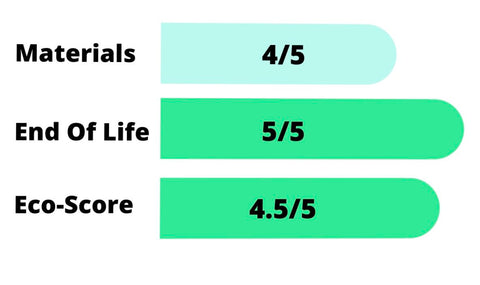How Environmentally Friendly Are Phone Cases?
At Pela, we are changing the landscape of the mobile phone accessories industry. We’re flattered that many other players within the industry have chosen to follow our lead and market new product lines as being more environmentally conscious. We want to break down the offerings and give you, the consumer, a method for evaluating the true environmental impact of a phone case.
Jump to:

What To Look For In An Eco Friendly Phone Case
The two factors to look at in an eco-friendly phone case are the materials that it is made from, and how the product will end its life. It is best to minimize the natural resources that go into the phone case and then to limit the lifespan and impact that those materials will have after they are no longer being used.
Phone Case Materials
In production, it is best for companies to use less synthetic, petroleum-based material and to reduce the energy required to produce their phone cases. Phone cases that use bio-based materials in their products will often market this as "plant-based" or "made from plants". As a customer, it is important for you to enquire about what percentage comes from plants- it can range from under 10% to almost 100%, depending on the brand and product.
Phone Case End of Life
The end of life is most important if you are looking to reduce the amount of waste that ends up in our waterways and landfills. The ideal phone case will fully decompose within a reasonable period of time (less than 1 year), not leech any harmful chemicals into the soil, and not break down into microplastics. It is best to choose a product that is certified to be 100% compostable. Without a third party certification, it is difficult to know what is marketing spin and what is fact.

Is Casetify Eco Friendly?

Casetify has recently launched their Casetify Conscious line of compostable cases. It claims to be made from bamboo and fully compostable within an industrial compost environment. We put their case to the test in our compost simulator and the results were underwhelming. Read more here.
Is Case-Mate Eco94 Eco Friendly?

Most of Case-Mate's products are not environmentally friendly. Case-Mate is well-known for their fun designs and protective cases. They have recently launched their Eco94 line of reduced environmental-impact cases made from renewable plant based materials and reclaimed plastics. Two of the products in this line are made from recycled materials and one case is biodegradable. We would like to see them upgrade to a fully compostable material and pivot their marketing away from recycled materials, as recycled materials sound responsible, but provide only a marginal environmental benefit. Read our full Case-Mate Eco94 review.
Is Tech21 Plant-Based Eco Friendly?

The Tech21 Plant-Based line lacks a plan for the end of the product's life. Tech21 is successful for their extensive line of colorful and protective plastic phone cases. Recently, they have committed to using a percentage of bio-based materials in their Plant-Based collection of products, but these products are neither compostable nor biodegradable. We would like to see Tech21 pay more attention to where their products will go after 18 months of use (the average time that a phone case is used by a customer).
Are Otterbox Products Eco Friendly?

Otterbox products are not good for the environment. Otterbox was the industry's pioneer for protective, nearly indestructible plastic phone cases. Unfortunately, their current product line does not include any biodegradable, compostable, or even easily recyclable phone cases. As the world becomes more aware of the environmental issues surrounding plastic pollution, we sincerely hope that Otterbox will begin to do their part to reduce plastic waste.
Is Incipio Organicore Eco Friendly?
Incipio's new Organicore line failed our compost test. Read more here.
Is Pela Case Eco Friendly?

Pela case is made from 45% plant-based materials. The remaining 55% is derived from non-renewable resources, used to provide added durability to the product. Pela case uses flax shive, a waste byproduct from agricultural flax harvesting, as a way to add strength to the product. We are actively working to increase the percentage of bio-based materials in our phone cases, without sacrificing structural integrity and durability.
Pela's primary focus has always been on the end of the product's life. The material used in Pela’s phone cases is certified to be 100% compostable, fully breaking down in 3-6 months within a compost environment. For users that don’t have a home compost, Pela offers complimentary product composting services for their customers through the Pela 360 program.
Pela case is a certified B corporation, meaning that Pela’s business practices meet specific sustainability, morality, and transparency standards. Pela also gives back 1% of its revenue to purpose organizations as a member of 1% for the Planet.
Let’s All Work To Keep Plastic Out Of Our Oceans
Nearly all of the phone cases on this list represent a step in the right direction, away from completely wasteful and unsustainable plastic phone cases. As the phone case industry moves forward, We hope that all companies in the industry will work to make their entire product lines sustainable and to drive innovation in the world of sustainable materials.
